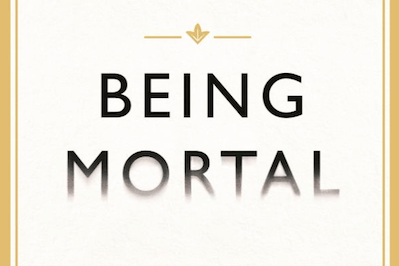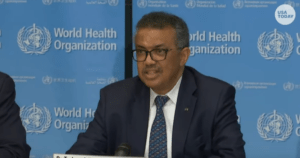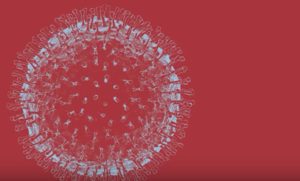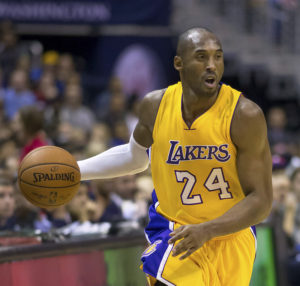Being Mortal
Surgeon and public health expert Atul Gawande writes in his book on facing the final phase of life that "as people's capacities wane making their lives better often requires curbing our purely medical imperatives When should we try to fix and when should we not?". Metropolitan Books
Metropolitan Books
Metropolitan Books
|
To see long excerpts from “Being Mortal” at Google Books, click here. |
“Being Mortal: Medicine and What Matters in the End” A book by Atul Gawande
Some think about death neurotically, occasionally or in a fleeting, nightmarish way. There are those for whom dying remains a preoccupation fused in grief and bewilderment after losing a loved one. And as baby boomers pass through middle age and beyond, managing a family member’s mortality has become for many a responsibility that takes up large amounts of time and psychic space. But death has not been a hot topic in America. There’s even an insistence that with care and good nutrition, our lived-long years do not actually “show” anymore. You know, 60 is the new 40, and so on. Who really wants to reflect on finitude? The End will come soon enough. …
Indeed it will, and our tendency to deny the inevitable is entwined with its mismanagement. Much of our society is unprepared for what could be an unpleasant and protracted period of decline before the last breath. However slowly it may pass, Atul Gawande’s most recent book, “Being Mortal: Medicine and What Matters in the End,” has much to offer about facing and handling that phase. It is also profoundly moving.
An experienced doctor and medical writer who has covered health care and its attendant social issues for The New Yorker, Gawande explains, clearly and interestingly, the body breaking down: Why so many develop high blood pressure after middle age, when our muscle mass starts to deteriorate inexorably; what your thumb reveals about age; and how a scary percentage of us won’t have teeth if we live to 85. He also charts historic changes in life expectancy, elder populations and medicine’s unintentionally inhumane methods of treating declining seniors and those with fatal diseases. His book provides an important window into the scientific and social realities of aging and dying.
Yet “Being Mortal’s” power derives from its stories of people who found themselves in contention with decline and disease, and the traditions and trials they encountered.
From the beginning, the author mixes medicine with the personal experiences and histories of patients and elders. Many people, of all ages, are included, keenly feeling their autonomy, contentment and dignity slipping away. All are memorable, and their details are shared in doses. This device had me wanting to know “what happened next?” and also spares readers from being too overwhelmed at once. A great deal of sadness winds through these pages.
As with Tolstoy’s Ivan Ilyich, one of the author’s literary references, most of those in “Being Mortal” are treated, but not truly cared for. In part, that’s because the medical establishment has been slow to realize that responding to old age as a disease leaves almost everyone involved unsatisfied, and worse. With most doctors trained to solve medical crises, and few appealing options for managing what has become the Long Old Age, situations — as opposed to solutions — have evolved that the healthy can’t fathom.
Needing help to live can be upending to one’s sense of self. When that help involves feeding and/or using the bathroom in an institutional setting with caregivers intent on efficiency, daily existence often becomes psychologically painful and agitating. Lives are extended, but living is curtailed.
Gawande gently describes each person’s waning abilities or health. But accompanying tales of physical and mental anguish are distressing, and my eyes welled with tears many times as I read. (I suspect that some readers will relate, as I did, to the anxieties and resistance experienced when navigating the confusing, narrowing corridors of their own family members’ lives.)
Two of the most affecting stories are about Alice and Atmaram, whose familial closeness to Gawande adds emotional weight to the book’s issues. Alice is the grandmother of the author’s wife; Atmaram is the author’s own father, and also a medical doctor. Alice’s decline is of a more common nature than Atmaram’s, which involved a rare spinal tumor, but each journey is striking. Whether you lose your ability to drive or perform surgery, independence and self-worth are at stake.Midway through the book, it becomes clear that Gawande’s investigation into mortality is a part of his own maturation that he avoided for years. This is key to his development as a fully humane doctor and person, and contributes significantly to the depth of the book. He takes the reader through the denial, incompetence, doubt and fear that he faced along the way — sometimes through instances in which he and other doctors sidestepped honest conversations with the terminally ill. They also recommended — sometimes strongly — treatments that were both brutal and ineffective, and these stories are shocking. Surely no sane person would do such things. But they do, and Gawande includes himself among those lacking the courage to find words that may have spared some patients needless suffering. He steps forward as being part of a system that has long failed to take the personal desires of the elderly and dying into consideration. He writes:
“Before I began to think about what awaits my older patients … I’d never ventured beyond my surgical office to follow them into their lives. But once I’d seen the transformation of elder care under way, I was struck by the simple insight on which it rested, and by its profound implications for medicine. … And the insight was that as people’s capacities wane, whether through age or ill health, making their lives better often requires curbing our purely medical imperatives — resisting the urge to fiddle and fix and control.”
Like anything involving humans, though, medical care is complicated. He continues:
“It was not hard to see how important this idea could be for the patients I encountered in my daily practice — people facing mortal circumstances at every phase of life. But it posed a difficult question: When should we try to fix and when should we not?”
“Being Mortal” addresses this crucial question, with its many facets and effects: costs and economic fallout, hope and suffering, fears and guilt. The trials of Sara, for instance, a young pregnant woman with terminal cancer, are tragic, even harrowing. Many terminal patients don’t get (or can’t hear) a realistic assessment of options, and continue futile treatment. So they suffer more than is necessary, or die in the ICU of a hospital — a most inhospitable place for final moments between loved ones. And often, the loved ones left behind are emotionally drained and raked with guilt.
There are no easy, pat answers. As Gawande reflected on the lives behind the needs, his perspective broadened. He learned that there is no hierarchy of loss in capacity, and everyone has a different definition of a life that is good enough to stick around for. He explores ideas in palliative and elder care, once novel, that are now gaining traction as outcomes improve. On the advice and example of others, he spends more time talking with his patients — a simple, but time-consuming effort. Over time, they feel more fully cared for, and experience less agitation, suffering and unhappiness.
From these struggles, including helping his father chart a comfortable-enough course through a progressive disease, the braided themes of collaboration, effort, perseverance and progress stand out in “Being Mortal.” These themes provide a guide for many complex realms other than medicine and mortality, but don’t come together often enough in “almighty I” cultures.
We all will face an end-of-life challenge. And there is no shortage of complicated problems needing sensitive people willing to address them, with the tenacity to stay involved until things improve or resolve. Gawande is one of them — a doctor who has become more, rather than less, engaged with medicine and people’s needs as time has passed. It is this caring and engagement that makes “Being Mortal” more than a niche book. It is a thoughtful, deep work about dying, the human condition and our capacity to improve it.
Your support matters…Independent journalism is under threat and overshadowed by heavily funded mainstream media.
You can help level the playing field. Become a member.
Your tax-deductible contribution keeps us digging beneath the headlines to give you thought-provoking, investigative reporting and analysis that unearths what's really happening- without compromise.
Give today to support our courageous, independent journalists.






You need to be a supporter to comment.
There are currently no responses to this article.
Be the first to respond.